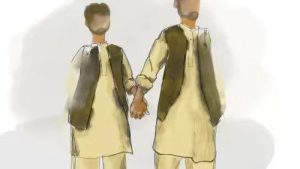Shame and Sexuality: The Fear of Being An Other
A workshop for therapists working on LGBTQ+ community
July 1 (Saturday), Zoom
Kris E. Larsen
About workshop
Although time has brought many positive changes to the LGBTQ+ community, it is still a reality that to be a sexual “other” is met with hostility in much of the world. Although much of the research has been focused upon sexuality as deviant behavior, the advancement of gender studies and gender expression reflects many of the same attitudes currently expressed towards a person’s gender, their desires and fantasies, their values and how they feel and care for their bodies. Continual hostility directed toward the very nature of ones’ being often leads to internalized shame and moving through the world in fear of retaliation.
In the LGBTQ+ community, some individuals adapt to societal abuse by becoming invisible or what is referred to as “passing”. Passing involves adapting behaviors or mannerisms associated with the “normal” or “us” community so as not be discovered and pointed out as different or aberrant. Passing causes an internal conflict in the psyche as the individual no longer feels safe enough to live life authentically out of fear of violence and instead adopts a self-construct that moves through life with anxiety of being discovered.
Dr. Donald Nathanson, author of ‘The Many Faces of Shame’, has focused his attention on how to help patients and therapists deal with the emotion of shame more effectively. He devised the Compass of Shame to provide a framework for better understanding the dynamics of shame as well as to support more effective approaches to treatment. In the compass, each of the four directions represents a reaction to an experience during which a shame trigger has occurred, a physiological effect has been experienced and a cognitive response has taken place.
So, what does this mean for us as therapists? Are we missing the subtle nuances of an invisible community? Are we facilitating explicit processing of sexual expression or moving blindly with our clients without awareness of how movement expression includes healthy and unhealthy behaviors associated with sexual connection and intimacy.
Utilizing the compass of shame as a springboard, this workshop will explore the somatics of shame and the development of a healthy intrapersonal connection to sexuality, sexual expression, gender identity, and gender expression. We will also explore our own personal prejudices and how these [prejudices] are non-consciously expressed through our bodies. Identifying our own connections to shame and prejudice opens us to the ability to recognize the obstacles to creating the therapeutic relationships necessary for this invisible community.
Let us explore sexual identification and the intimacy of gender conversation.




Learning Outcomes
- Gain increased knowledge of gender and sexuality through historically situated contexts.
- Increase awareness of body knowledge/body prejudice as it relates to working with LGBTQ+ clients and their gender identity/expression.
- Develop awareness of the shame response in relationship to self, client, and therapeutic relationship thereby increasing compassion for all parties involved.
- To become attuned to the nuances of a shadowed community and the finely tuned movement behaviors that keep its members safe from being discovered.
Instructor
Kris E. Larsen

Kris E. Larsen, BC- DMT, part-time faculty at Columbia College Chicago for 28 years and now currently adjunct faculty at Adler University, dance therapist and performer. Kris is interested in the bridge between creativity and identity, creativity and mental health, creativity and neurobiology. As a dance therapist, he has explored the role of shame in the addictive cycle as well as how dance therapy can be a paradigm for a healthy “coming out” process. Further education into Sensorimotor Psychotherapy and neurobiology has illuminated the necessity for creating movement interventions that assist in modulating arousal states and promoting mindful somatic awareness.
His latest dance works have been focused upon identity and the search for meaning while confronting stereotypes and societal marginalization of culture.
Apply for this workshop
- Time: July 1 (Saturday), 9pm – 12pm (EDT), 2am – 5am (GMT), 3 hours including 15 min break
- Place: Zoom
- Fee: 125 USD; 95 USD (early bird before June 9), 105 USD (registered IACAET member)
- Send email to education@inspirees.com to register






